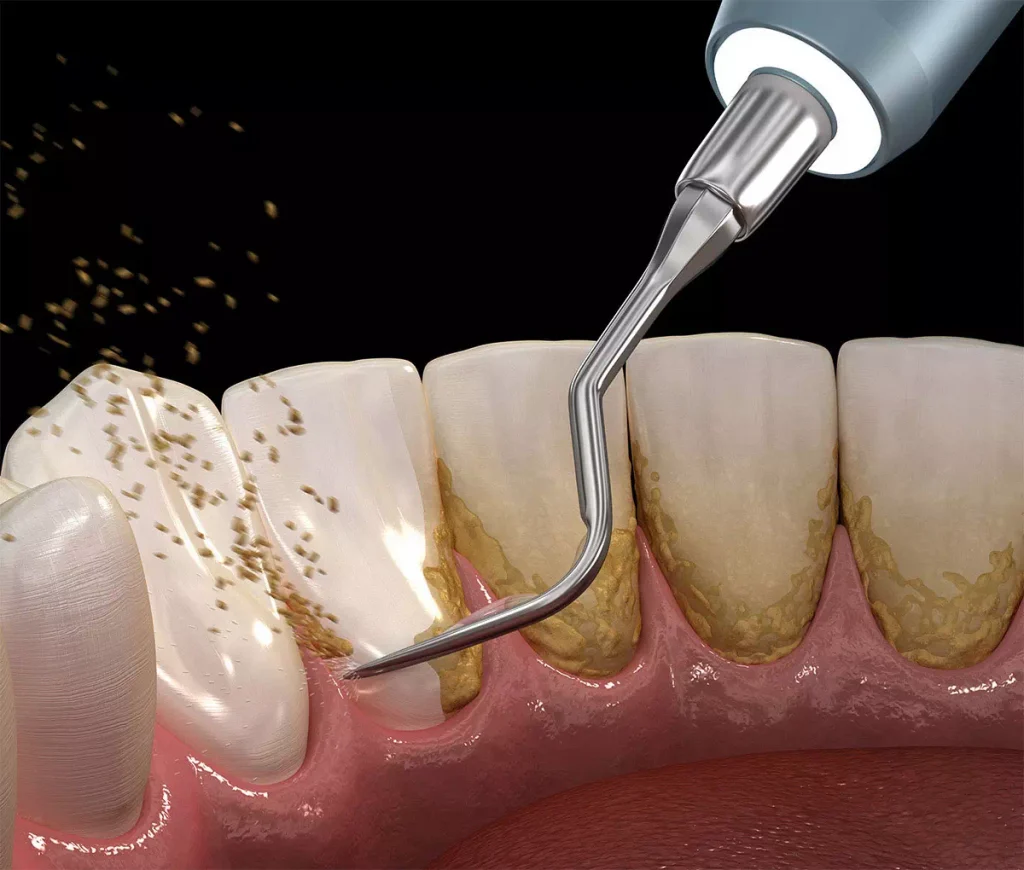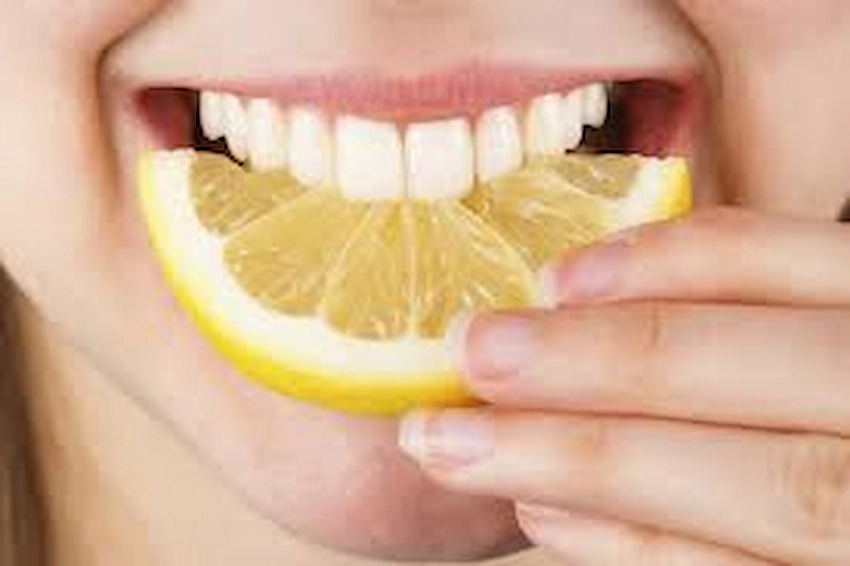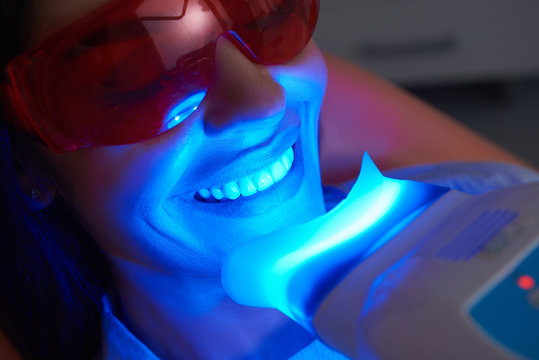🦷Yellow Teeth Remedies: Home Vs Professional

Are pastel yellow stained teeth affecting your self-confidence level? Home remedies such as baking soda or whitening strips may seem tempting, but professional teeth whitening treatments function more effectively as well as long-lasting albeit somewhat expensive than the earlier options available for consideration. Many people have suffered from amber-colored teeth that bring reduced self-esteem and a less impressive smile. So, while undesirable, with professional teeth whitening therapies that promise miraculous outcomes, cost-effective alternative solutions such as home remedies do exist.
However, which option can best provide lasting results? In this article, we will critically assess the highlights as well as shortcomings of these two techniques, thereby informing you on how to achieve a bright and glamorous smile. If you also wish for pearl-white teeth and really want to know about the efficacy, safety, and convenience of the things we have available to utilize as the best remedies for tooth whitening, read on and we are going to unravel the mysteries behind home treatments versus professional works.
Home Remedies for Yellow Teeth
In case, having discolored or yellow-ish teeth has left you uncomfortable with your appearance or self-esteem in public, and if you are in a situation that requires natural solutions at no cost, here are some potent home remedies, some of which can be done instantly and others such that form part of our lifestyles.
- Baking Soda & Water: Mix a tablespoon of baking soda with 1 tablespoon of water or mix with ½ tablespoon of lemon juice & use this to brush the teeth for a few days in weeks for a bright smile. This is effective because it acts as a natural abrasive agent that scrubs away stains on the surface layer of enamel and thus the overall healthy appearance is restored.
- Homemade Mouthwash Using Hydrogen Peroxide: Mix two parts of water to one part of diluted hydrogen peroxide then use the diluted solution as a mouth rinse or apply it on the surface of the discolored teeth using a cotton swab. Given that hydrogen peroxide possesses strong anti-bacterial properties as well as the capacity to bleach, it can facially treat areas around stains by erasing them into relative invisibility.
- Apple Cider Vinegar Effectiveness: Mix a solution that consists of apple cider vinegar with (water), shake it before swishing around your mouth for about seven minutes. This natural remedy can indeed reduce stain buildup, but care must be taken since it contains strong acidity which sometimes erodes dental enamel when used repeatedly.
- Gently Brushing with Activated Charcoal: You can also use activated charcoal as part of the tooth-rubbing process rather than just merely through doing swish in water like all other methods discussed because it is said to be effective at absorbing impurities. Brushing this black powder as your normal toothpaste minimizes the possibility of yellow teeth hence highly recommended for users who want whiter dentition on the go.
Combating inconsistent tooth coloration cannot be regarded as lacking significance since some remedies when correctly followed will give good results once an individual utilizes them properly. However if you desire a better solution and instant results
Strawberries: Use fresh strawberries to make a paste by mashing the fruits and then mixing it with baking soda to effectively and naturally whiten your teeth. The malic acid found in strawberries effectively lifts and wipes out the surface stains, granting you the confidence to smile without hesitation. Although it might be interesting to try these popular teeth whitening methods, it is advisable to be consistent when using them in order to achieve the desirable results as this effect takes time to appear.
To enhance the whitening effects of strawberries and the different home products, it is essential to maintain good dental hygiene regularly. The simple act of brushing your teeth twice a day as well as any buildup and plaque between teeth could actually improve the dental condition and make the teeth whitening might have a significant effect. It is advisable to refer to a qualified dentist whom you trust to evaluate whether any of the professional approaches are viable for the improvement of your smile.
Professional Teeth Whitening Options

In case the home remedies and natural products are failing to provide you with the desired results in brightening your teeth, it is time to switch to effective professional teeth whitening options that may be available from certified cosmetic dentists in your area.
These methodologies are effective and provide a faster and efficient way of whitening your teeth than what you would do at home. They have been proven to deliver stunning results in good time and you should be sure to try the one which best suits your needs.
- In-Office Whitening: This procedure involves a stronger whitening agent applied by a dental professional, and within a single session, you will walk out with much whiter teeth, with amazing results that can last for months. You can go through this fantastic procedure in a 90-minute session if you invest little time and can also go immediately back to your daily pursuits.
- Take-Home Kits: For those who prefer whitening at their convenience, dentists offer custom-made whitening trays and gel that you apply at home. These kits, if used properly, can also result in great brightness as the disposable trays fit snugly to reach all the corners of your teeth. While they may take longer than in-office treatments to achieve results, home kits are more affordable and still effective.
- Whitening Strips: In some instances, whitening strips that your dentist recommends prove more efficient than the ones you get from the shelves at the drugstore since the teeth will be treated with a stronger composition for links. This method is popular among people who value the flexibility and ease of using 4 that they can perform the process whenever they want.
- Laser Teeth Whitening: The spectacular laser teeth whitening method utilizes the innovative laser technology to boost the action of the whitening gel and to promote enamel bleaching.Though being the most adapted procedure; it is -fast and effective, and during a singular visitation, it will promote brilliance effects on your teeth. If you dream of ready-to-use sexy teeth instantly then going for laser whitening is your best choice.
When you consider the potential and proven effects of the professional approach, it is easier to see how it can be a worthy investment for that brilliant, confident smile you have always wanted. The final choice of whitening procedure is always at your dentist.
Benefits of Professional Teeth Whitening
Professional teeth whitening is an effective procedure for enhancing your appearance and gaining a lovely, sparkling smile. First, it is right to understand that teeth whitening creates quick and visible results. Just after a single appointment, your smile can look much brighter. Differently from the over-the-counter kits which may take months for their effect to be felt, the professional teeth whitening gives noticeable results after one appointment because it can change the color of your teeth to several shades whiter.
The dentists use stronger whitening products, unlike those sold over the counter, hence producing more efficient and long-lasting results. This increased strength goes deep into the surface of the teeth and effectively removes any persistent stains that are within the teeth.The whitening procedure provided by dentists is customized according to the individual patient’s needs hence it is very safe.
This professional whitening procedure is not only effective but also protects the integrity of your teeth. The dentists care about every detail of a patient’s dental condition and accordingly modify the method to the individual case taking into account the specific characteristics of the patient’s teeth and the sensitivities involved in the procedure to achieve the best results without harming the enamel.
The patients have great trust not only in the process but also in the intense astounding results that positively impact their confidence and self-esteem. Many participants after carrying out teeth whitening say that they feel much better regarding their appearance and confidence levels and with this newfound confidence, they can engage more positively in both social and professional interactions.
Lifestyle Changes to Prevent Yellow Teeth

When you want to whiten your teeth, people are looking for some different options, and changing your lifestyle properly is the only way to make it a lifelong one. If most of us were to be honest, we all want to have that picture-perfect smile just like the one we see in advertisements but very few of us are in a position to go an extra mile to ensure that we achieve it. Below are a number of suggestions that are just few of the ways to maintain good oral hygiene thereby leading to healthier and whiter teeth:
- Don’t Use Foods and Drinks That Cause Stains: Pay attention to the food and drink that you intake as some are the major reasons for the teeth discoloration leading to the teeth being yellow. Limit the consumption of substances that are causing your teeth to be stained, and at the same time, select the drinks and foods whose effect on the teeth is minimal. The avoidance of the particular drinks will not only solve the problem but also retain the original color of the teeth.
- Stop Smoking: One of the major reasons for teeth discoloration is the smoking of tobacco. That’s right, but you don’t have to feel trapped because the tobacco control program has a lot to offer. By quitting, not only do they protect their health and appearance, but they also decrease the risk of a whole batch of smoking-related diseases. Moreover, by quitting the consumption of tobacco, an individual is not only protecting their dental health but also their breath’s odor will be changed significantly.
- Ensure The Practice of Oral Hygiene: Remember to brush your teeth if you want to maintain good oral hygiene. Use a toothbrush that has soft bristles and which is small enough to reach every part of your teeth to do the cleaning. If you use a gel, mouthwash, or teeth whitening products make sure that they contain fluoride because they are more effective when it comes to teeth protection. It does not only whiten your teeth but also will freshen up your breath.
- Keep Up to Date with a Dentist Regularly: It’s paramount that you efficiently stick to your oral hygiene routine and keep visiting your dentist for regular check-ups at least twice in a year for teeth cleaning as well as dental check-ups. You can make the best use of these sessions by seeking professional assistance from those who are highly trained and have the necessary permits which they can still explore and give you a guideline to enable you to still work with your teeth whitening project.
- Establish a Consistent Teeth Whitening Procedure: The major step in the whole process of teeth whitening is to take your time and ensure that your teeth are thoroughly cleaned for not less than two minutes twice a day and of course, flossed at least once a day for all the food remains and plaques to be thoroughly removed.
- Keep Up to Date with Your Dentist: Together with your regular oral hygiene practice, it is necessary to ensure that a dental professional checks the condition of your teeth and performs teeth cleaning on a regular basis. S/he knows the necessary and appropriate equipment for the procedure as well as whether the stains are only superficially attached and can come off through a professional cleaning or if whitening needs to be done then he/she knows what proportion and concentration of the bleaching solution should be applied.
Frequently Asked Questions About Teeth Whitening
Yellow teeth are often caused by poor oral hygiene, excessive consumption of staining foods and drinks (like coffee, tea, and red wine), smoking, or natural aging. The enamel on your teeth can wear down over time, revealing the yellowish dentin underneath.
Home remedies for whitening teeth include using baking soda and water, hydrogen peroxide mouth rinses, apple cider vinegar, or activated charcoal. While these can help reduce stains, professional whitening treatments tend to provide more noticeable and long-lasting results.
Over-the-counter products like whitening strips, gels, and toothpaste can help remove surface stains and slightly brighten your teeth. However, their results are often less dramatic than professional whitening treatments, and they may require consistent use over time.
Professional teeth whitening is a more effective, in-office treatment where a dentist applies a stronger whitening gel, often activated with a special light. It typically provides faster and more noticeable results than at-home treatments.
The results of professional teeth whitening can last anywhere from 6 months to 2 years, depending on your oral hygiene and lifestyle habits. Regular dental cleanings and avoiding stain-causing foods can help maintain the whiteness of your teeth.
Yes, teeth whitening is generally safe when performed by a professional or with approved over-the-counter products. However, improper use or overuse of whitening products can cause tooth sensitivity or gum irritation, so it’s important to follow instructions carefully.
While teeth whitening can remove most surface stains, it may not be effective for deep, intrinsic stains caused by certain medications, aging, or trauma to the teeth. In such cases, alternatives like veneers or bonding may be recommended.
Professional teeth whitening typically ranges from $300 to $1,000 depending on the method used and the dentist’s location. In-office treatments tend to be more expensive but deliver faster, more dramatic results compared to at-home kits.
To maintain a white smile, brush your teeth twice daily with fluoride toothpaste, floss regularly, and avoid foods and drinks that stain teeth, such as coffee, tea, and red wine. Regular dental check-ups and cleanings will also help preserve your results.
The most common side effect of teeth whitening is temporary tooth sensitivity, especially to hot or cold foods and drinks. Some people may also experience mild gum irritation, which typically resolves after a few days.




